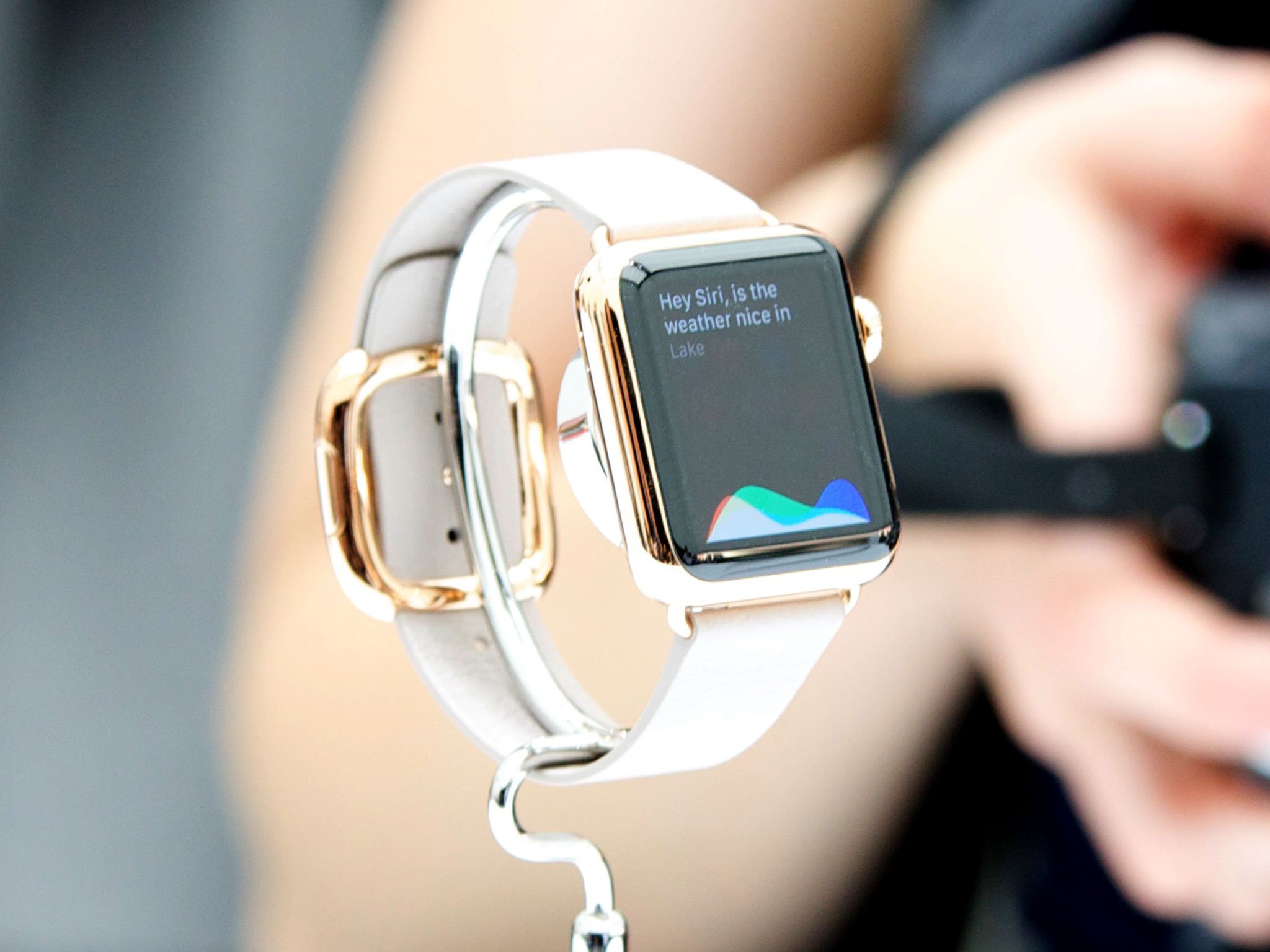Convenience — Apple Watch's killer feature

A lot of the post-game analysis surrounding the Apple Watch event in September centered on the showcasing of a list of features rather than the presentation of a clear case for why people need it in their lives. There was no iPhone-style "are you getting it yet?" moment or iPad-style "better than both" argument. Yet the neither of those devices really sold based on those pitches. The iPhone had us at the interface and the iPad at the experience. Because of that — because we've seen amazing interfaces and enjoyed incredible experiences already — the Apple Watch will have to have us at something else. And that something else will be convenience.
Before the Apple Watch was announced I wrote that I hoped it would excel at doing four things:
- Logging: Collecting sensor-derived health and fitness data via HealthKit.
- Controlling: Serving as an interface for accessories, especially home automation, via HomeKit.
- Authenticating: Making, for example, mobile payments via PassKit (or whatever Apple replaces PassKit with).
- Alerting: Relaying priority notifications.
Apple did all those and one better:
- Communicating
With the Apple Watch, we'll be able to keep track of our steps, buy something with Apple Pay, pause or play our Apple TV, and let our family and friends know that we're out there and thinking of them.
Since most of those things are backed up by frameworks like HealthKit, WatchKit, PassKit, and HomeKit, we'll be able to do whole lot more as well.
We'll be able to share our stats with our coaches, show our boarding passes at the gate, choose the next power-up card we want to play, and turn off all our lights when we go to sleep.
All without needing to pull our iPhones from out of our pockets, purses, bags, or go get them from off the table or across the room.
iMore offers spot-on advice and guidance from our team of experts, with decades of Apple device experience to lean on. Learn more with iMore!
Logging. Controlling. Authenticating. Alerting. Communicating.
These are all important things. They're things we need and want. But they're also brief things. They're intermittent and unpredictable things. They're things that the Apple watch will be able to do more efficiently — maybe even better.
I've told many of these stories before:
- My mother wants an Apple Watch so she can get the iPhone 6 Plus, leave it in her purse, and not have to worry about missing messages or calls.
- My sister currently uses a Pebble because her hospital's paging system runs on the iPhone but she doesn't want to carry it with her on rounds.
- A friend who jogs is dreaming for the day he can leave home without having to carry his phone or his wallet.
- A friend who's in meetings all day and can't check her phone — because, rude — is looking forward to the taptics triaging for her what's really urgent.
- A buddy who's all-in on home automation can't wait to say "Goodnight, Siri!" and have everything lock down and turn off for the night.
That's how it works. Smaller, more personal things don't have to be as powerful or functional as bigger, less personal things. The iPad doesn't have to do as much as the Mac. The iPhone doesn't have to do as much as the iPad. The Watch...
When the iPhone launched in 2007 it wasn't fully independent. It required a computer but also enabled us to do things without going running back to our computer. Over time, it gained its independence and now we can do so many things some of us don't need to go running back to our computer at all any more.
The computer remains bigger and more powerful, but the iPhone is more personal and more portable. It's the best device there is for what it does because it's the device we have with us.
The Apple Watch will be the same. It will depend on the iPhone at first, but it will let us do just enough of just the right things that we won't need to go reaching back to our iPhones as much. And over time, who knows?
The iPhone will dominate for years to come, but the Watch will be even more personal, more portable, and it could end up being with us even more.
The Watch could be better at all the small, short, repetitive tasks that add up to a lot of time and effort. With short look, a long look, a glance, an extension, an app, it could be better by giving us just enough, and giving it to us just in time. And without having to reach for our phones.
"Saved you a click" is something of joke. "Saved you a reach" won't be.

Rene Ritchie is one of the most respected Apple analysts in the business, reaching a combined audience of over 40 million readers a month. His YouTube channel, Vector, has over 90 thousand subscribers and 14 million views and his podcasts, including Debug, have been downloaded over 20 million times. He also regularly co-hosts MacBreak Weekly for the TWiT network and co-hosted CES Live! and Talk Mobile. Based in Montreal, Rene is a former director of product marketing, web developer, and graphic designer. He's authored several books and appeared on numerous television and radio segments to discuss Apple and the technology industry. When not working, he likes to cook, grapple, and spend time with his friends and family.

